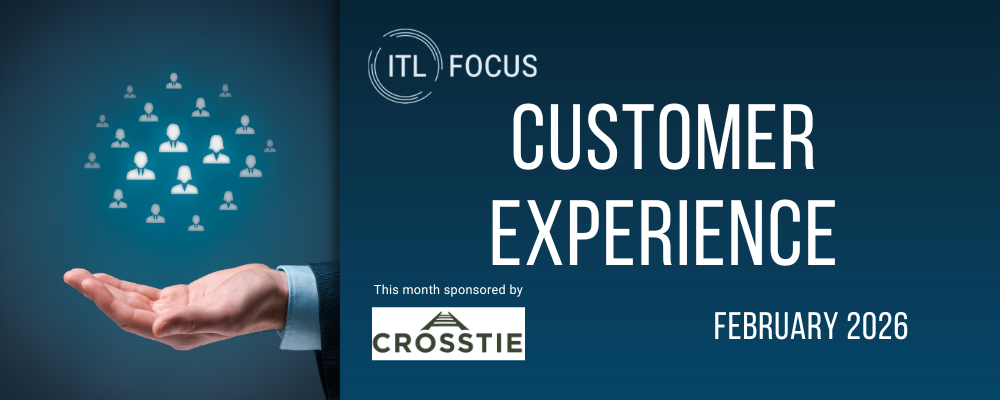 |
For this month's ITL Focus, on customer experience, Editor-in-Chief Paul Carroll talked with Jay Baer, a guru on the topic whom Paul has known for years. Jay has consulted frequently on the topic, has written any number of books and is a sought-after speaker. He is always insightful and never dull. |
ITL:
Would you start us off by walking us through what you see as the most important components of customer experience, and how insurers stack up on them?
Jay Baer:
Some insurance organizations like Lemonade are really built for speed – like the time they processed a claim in three seconds using AI. Then you have your legacy insurance folks, who are certainly not doing that, even though research suggests that speed is now the most important criterion of customer experience. Two-thirds of customers now say speed is as important as price.
A lot of the trends that we see, whether it's work from home or employees demanding flex timing and parental leave, are actually the same trend, which is that we care more about time and how we spend it than we used to.
Empathy is also sometimes not the strong suit of the insurance business. Personalization is important, too, and certainly some insurance organizations do a better job than others of treating policyholders as if they are unique individuals and not just a policy number.
The fourth one is clarity. Customers just want to know what is going on. And this is an area where insurance really has some improvements to make. In my work, I call it the uncertainty gap. The uncertainty gap is the difference between what you know about your business and what the customer knows about your business.
I think insurance and healthcare probably show the two biggest uncertainty gaps. Insurance professionals know a lot about how insurance works and why things are done a certain way and actuarial tables and all of those things, and your average insurance customer, whether it's consumer or business, doesn't know anything about anything.
That gap creates a lot of anxiety, but most insurance companies, whether they're big companies or even individual brokers, generally take the tack of, “Well, it's pretty complicated, so we're just not going to tell you, because you won't understand, anyway.”
ITL:
I do think insurance has some inherent issues just because it’s so complicated, but I agree that Lemonade has done a good job of putting a pleasant front end on all the contractual language. What should other insurers be doing?
Baer:
You need to create what I call a “coveted customer” experience. That buys you something that we routinely overlook but that is incredibly important. It buys you the benefit of the doubt. Because in every business – it doesn't matter if you're an insurer or an airline or a restaurant -- eventually something's going to go less than perfectly. You don't want that mistake or inadequacy to be the straw that breaks the customer’s back, making them say, “I never did like those guys.” What you want, instead, is, “They’ve overdelivered so often in the past that I'm going to overlook this mistake.
The “coveted customer” experience establishes a relationship where price and perfection are no longer required. But you've got to exceed expectations often enough and palpably enough to create that experience.
ITL:
You’re on a roll….
Baer:
Customer experience doesn't actually exist. It's fake. We made it up. We treat customer experience in business as if it's a knob you can turn or a switch you can flick. It is often referred to as if it is a holistic business construct, but customer experience is not a thing.
It is ALL of the things. It's arguably hundreds of different decisions that you make in your business every single day.
People toss out advice: “You should be better at customer experience.” Well, yeah, but that's useless advice.
If you think big about customer experience, it's never going to work. You have to, instead, think small. You have to focus on really specific things that you're going to stop, start or change in your business. And if you do enough of those stops, starts or changes, eventually you'll get to that “coveted customer” experience.
That buys you the benefit of the doubt, and that's how you actually grow your business.
ITL:
I love that. Does an example pop to mind of an especially useful stop, start or change someone has made?
Baer:
There’s a moving company in Texas that had a bunch of unhappy customers. It was a real puzzle to their owner. Some moving companies are just okay, as you know, but these guys really had it together, so why were there all these complaints?
We analyzed the complaints and realized that most of the unhappiness wasn't actually about moving. It was about lack of understanding. The customers didn't know what time the guys were showing up, and they didn't know they had to trim that branch over the driveway to make room for the truck. They forgot to pack the dishes the right way. They didn’t know the cat shouldn't be there. Etc.
The owner thought, “That’s weird, because we already told them all this stuff.” And he was right. When you book a move with them, you get a welcome kit. A week later, you get an email. On the day before, you get a text message. Stuff like that. The owner thought, “We already told them all this stuff. And now they're mad that they didn't know it?”
Then he realized something that I think is very germane to the insurance business. He realized: “100% of his customers are moving.” Nobody ever says, “You know, the time that I was really on the ball was that week that I moved.” No, you're super stressed out during a move.
The same thing applies to insurance. Nobody is at their best when buying insurance. They aren’t poring over their insurance communications to make sure they understand every nuance.
What the mover did to fix his problem was to call all the managers together and say, “Okay, here's the plan. Customers are either not reading our stuff or they're just skimming it because they have other things on their mind. From now on, we double everything. We send two welcome kits. Instead of one email, we send two. Instead of one text message, we send two.”
And all the complaints went away.
I asked the owner, “Don't people get annoyed with all that communication? He said, “Jay, I've never had a customer say, ‘Please stop informing me.’”
There's a lot of truth to that. If it feels like you're overcommunicating, you're probably communicating just right.
ITL:
That’s great advice: Communicate, communicate, communicate.
Any final words:
Baer:
The time to double down on customer experience is in an uncertain economy. Most of your competitors still look at CX as an expense. When they get nervous about the economy, they start thinking about how they can cut expenses at the margins, and that can damage customer satisfaction. By my way of thinking, an uncertain economy is the time you do the opposite. It’s easy to spend on customer care when everybody is making money. It takes real guts when people aren’t sure if they are. But on the back end of that economic uncertainty, you're going to have a level of customer loyalty that they simply don't.
ITL:
Thanks, Jay.





